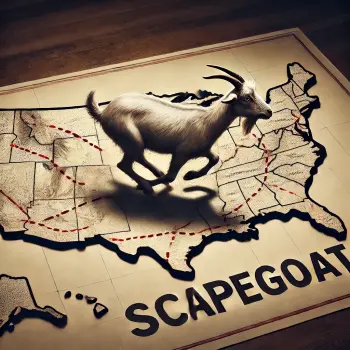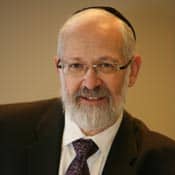At the time of this writing, the debate over the nature of a Western response continues. One position, however, ought to be rejected. The Quaker reaction was to mobilize against a military response not out of political or practical considerations, but because Quakers reject all military responses.
The world is a better place because of the way Quakers remind us of how unsatisfying it should be to contemplate taking a single human life. Yet, Jews (and we know that many, if not most, Christians are with us on this, on both practical and theological grounds) believe that the same way we are commanded by G-d to assiduously pursue good, we are also commanded to understand the full power of evil in an unredeemed world, and not to underestimate its potency.
One of the first biblical narratives after the expulsion from Eden is the conflict between Cain and Abel. It is a puzzling story. At its conclusion, the good guy is dead, and the bad guy cops a plea-bargain. What kind of lesson does that hold for us? One of the great rabbis of four centuries ago, known as Maharal of Prague, saw it this way: Abel in Hebrew is Hevel, which happens to mean emptiness and vacuousness. Cain represents strong, determined evil; Abel is good, but irresolute, wimpy good. Guess who is left standing in an unperfected world?
Jews in particular remember the acts of courageous Quakers who shielded them during the Nazi Holocaust. But they also remember the insistence on pacifism by Quakers under all circumstances, and the inevitable question of how many of the sixty million people who died in World War II could have lived if intervention against Hitler had come earlier.
We remember that the "red line" that the Syrians crossed recently was first crossed decades ago when Saddam Hussein gassed the Kurds of Halabja. The world did nothing at the time, and we are paying a bitter price for that inaction today. Quakers are speaking a language that is intelligible only to a civilization living much closer to the border of the Garden of Eden than the one we live in. Listening to their message, however beautiful, relegates religion to the realm of the theoretical. Most people will sense this as the failure of the Living G-d to address our lives in the here and now.
We wish we had more pleasant things to contemplate as we approach the new year. As Jews, we are even more attuned to the power of evil, as many of our relatives hunker down in Israel, waiting for the retaliation by any number of Arab groups for the expected Western strike. Iran, fighting a proxy war in Syria against the Saudis and others who support the rebels, announced that Israel (which is not a party to the conflict at all) will burn, the chosen target of the hatred of Jews carefully cultivated in the Muslim world for decades. The announcement was made banking on gaining the sympathies of European leftists who were all too eager to concoct stories about how it was all the fault of the Jews.
We will share with our Quaker friends the dream of a redeemed world, and pray that it should soon become a reality for all of mankind. But until it does, we will seek, with the help of G-d, a Divinely guided path through the minefield of an unredeemed world.





